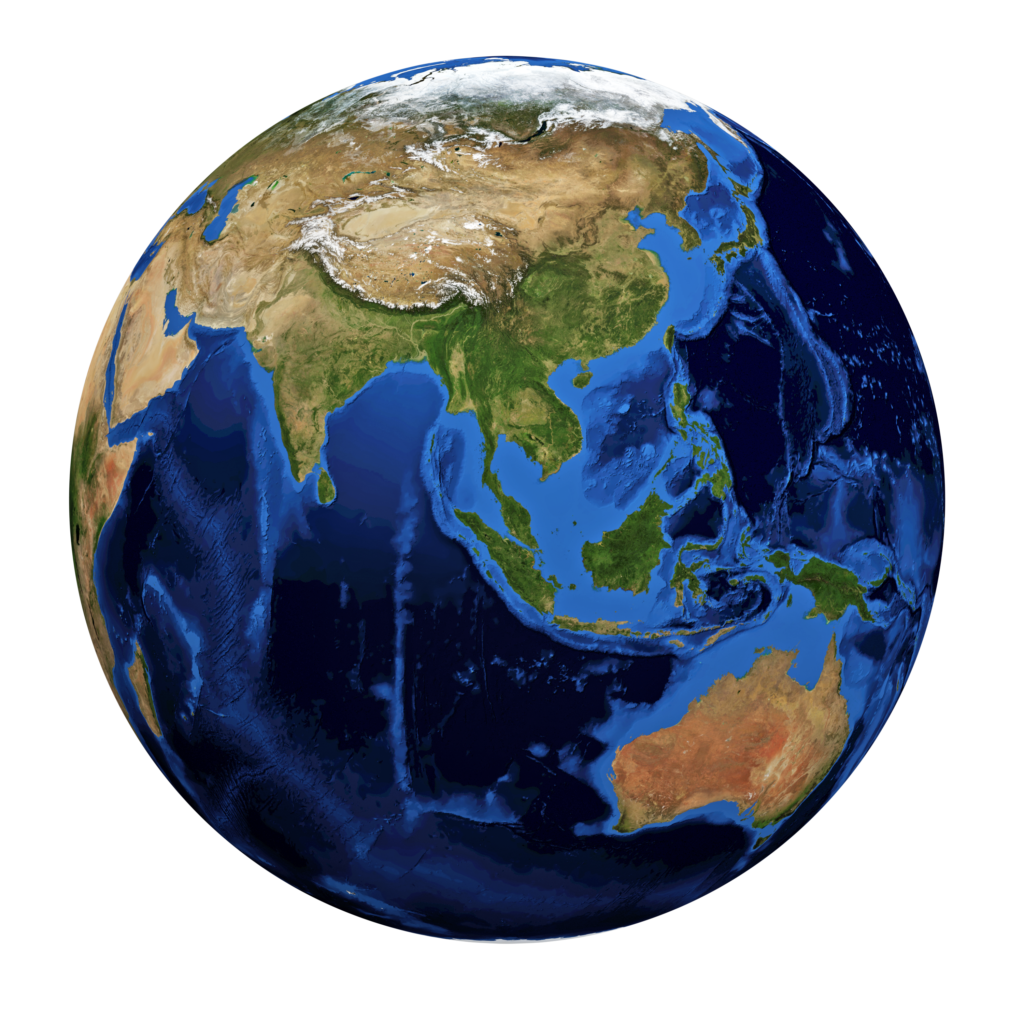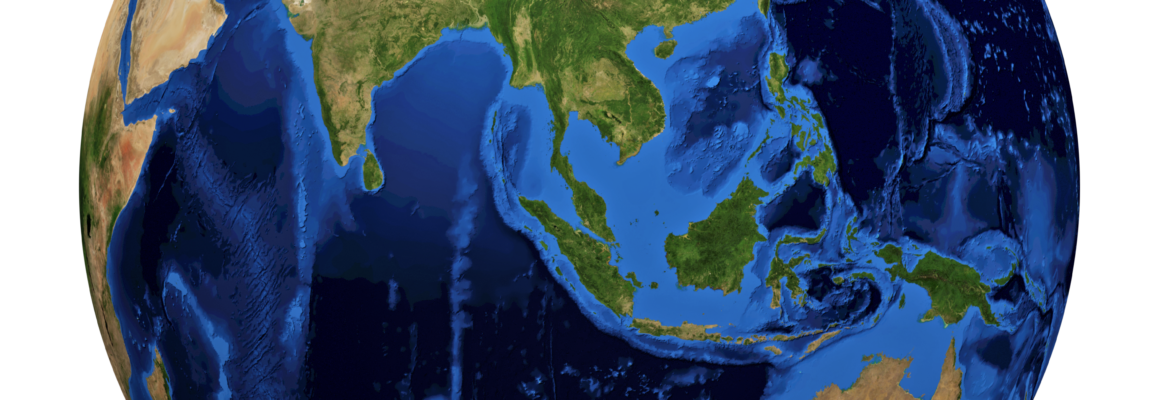February 27, 2018 by Ed Kennedy
The Asia Advantage: How Do Digital Professionals Engage with Asia in the Era of Global Disruption?

When it’s heard this author has studied Asian politics at university‚ or worked as a journalist and ran a business in Asia‚ a common question usually follows ‘How do you begin working in the region‚ anyway?’ Disruption has changed the way in which we live‚ and are set to live. While it’s not breaking news recent years have seen greater volatility arise in the political arena – one need only look at the political earthquakes of the 2016 US presidential election and Brexit to know it’s no longer ‘business as usual’ – economically speaking our world is becoming more and more borderless.
This means the old way of doing this in business no longer apply. Even in Asia. So what is required for someone looking to start a career in the region? Let’s go through one by one.
1. Understanding
There are some regions of the world that when described, broadly share a set of traditions. The British Isles, while each have different languages and nations, share a common kingdom.
The same applies to nations in the European Union, many differences, but uniting themes. Asia is a much more contested space.
Not only is there no central unifying structure in Asia, but also a number of bitter histories, high octane disputes, and radically different world views. In some respects similar features can also be seen in other regions in the world, but not all-in-one, in the same way. That’s why any talk of engaging Asia must begin in the first with a recognition 4.4 billion people spread across 44.58 million km are going to have some different views.
And even among nations and borders these differences can endure. Not only among the obvious prominent regional conflicts like the Taiwanese sovereignity issue between Taipei and Beijing, or North and South Korea, but there can also be more opaque but still significant divides between urban and rural populations, highly religious and more irreligious secular groups, and even among youth and older citizens. Just because borders are set and land is shared, there can be huge differences across the population in an Asian nation, even a system of government and a flag is shared.
Once this is understanding is in place, the building block for building a career comes with a recognition a precision approach to building a career is sage. Accordingly…
2. Specialisation
Because of its size and scope, professionals looking to build a career in Asia are best served in the beginning by picking a particular area of interest, or country to specialise in. There is nothing to say this can’t be built upon in future, and expanded outwards, but beginning with a goal to work effectively across the whole region in all its diversity can soon prove counterproductive.
The field you work in (or want to in future) will have a big impact on the specialisation you select. Generally, the bigger the nation, the greater the resources on offer for learning in that area. That’s why many universities around the world have dedicated departments Japanese, Indian, and Chinese studies, but not so for the Maldives, Asia’s smallest nation.
Oftentimes this is not so much an active choice as a follow through, as word comes from higher up your company is set to open a new office in Asia, and its time to learn fast about country A or territory B. Ultimately building outwards as opposed to starting with a top down approach is essential.
3. Language
Apps like Google Translate have certainly delivered big change to the world of languages. They have diminished old divides between people of different languages, and while not nearly perfect in their process, are only going to get better in future.
This notwithstanding, actually understanding and speaking a language retains a great value today. It is not only a communication thing‚ but a cultural thing.
This value is apparent even across different nations that speak the same language. The ‘American Dream’ and ‘Australian Dream’ are both longstanding national ideals‚ articulated by predominantly English-speaking countries with many shared cultural traditions – and yet the definition of each dream is entirely different.
So even when words translate well from one language to another‚ the cultural significance of them can differ greatly. Sure it may take many years to arrive at the level and skill of a United Nations translator, but progress can come quickly when a holistic view to what’s gained is held. Even if you don’t speak a new language perfectly‚ you will gain a greater understanding of the people who speak it very quickly. And that’s invaluable.
4. Travel
Travel is not always possible. And it is not always urgent. You can begin employment or start a business today in the Asian region without needing to be there. That’s the advantage of remote work in the digital age.
But even if you ultimately don’t need to travel‚ doesn’t mean it is wise to skip it.
Like language‚ travel may rarely add one huge whopping advantage to your career‚ unless your pitching for a $10 million dollar deal in Tokyo in fluent Japanese over a competitor who can’t speak a word of the local tongue‚ it’s likely to be incremental.
But however you look at it, someone who has spent time with their feet on the ground in Manilla, Mumbai, or the author’s hometown of Melbourne will have a more confident understanding of the region over someone who aspires to learn and grow their Asia knowledge from Greenland or Iceland.
These countries have a lot going from them, and anyone reading this from there need not click away from this piece and close the door on any idea they could contribute their skills to business in Asia‚ but the reality remains these Nordic nations are far from the day by day dynamics that play out in the region. Making a plan for a trip sooner if not later is worthwhile for those who aspire to build a longtime career in the region.
5. Proximity
The advantages of travel notwithstanding‚ it does come with a caveat. Once upon a time distance could be the key definer of your capacity to work effectively in Asia. Or everywhere in the world really.
Today that distance issue has become far less important. There is absolutely still advantages in learning a language and travelling in the region‚ but day by day business now has the capacity to be truly 24/7‚ and truly perpetual.
Skype and FaceTime have diminished the need for a face-to-face meeting, and the rise of the smartphone and tablet in the past decade has made communicating and managing businesses anywhere, anytime, seamless. So too has PayPal made global transactions easier. Even the advent of blockchain is now set to revolutionise the speed in which we can exchange digital goods and information.
As opposed to waiting for an upcoming trade show or conference‚ work can begin today‚ and it can usually be done right now. This is something that is entirely possible but still sees a disconnect endure among many people.
So‚ it may be unlikely to imagine a premiere writer in Asian politics or eCommerce is now just emerging among the aforementioned Nordic nations – but if someone in Greenland or Iceland does have their heart set on working in Asia? Distance be damned‚ start now. But just also keep in mind…
6.Timing
Time Zones remain an issue. Like language, for all the progresses we see in the digital age, it won’t change the fact that once the sun rises over Auckland, New Zealand, it will take around 17 hours for the first rays to flicker over San Francisco.
In some areas of Asia this is quite manageable. The city of Perth in Western Australia shares a continent with the eastern capitals like Melbourne and Sydney, but ultimately shares a timezone with Singapore and Shanghai. Even when not perfectly aligned, Perth is closer in time zone to Jakarta and Tokyo that it is to Brisbane, Canberra, or Hobart.
An hour here or there is usually manageable, but if you are a professional from far outside the region looking to build a career in the digital age, be prepared for late night and early morning work.
7. Exchange
People know Asia is growing but can easily overlooked the fact that means its growing outwards. That’s why Abenomics in Japan has seen a renewed push by the Abe government to get a new economic deal done with the European Union. That’s why India is building renewed links in Latin America, and more widely, why the Brazil Russia India China and South Africa (BRICS) bloc will increasingly compete for trade and influence throughout the Caribbean, as each BRICS nation considers their future in a world where economic power will continue to trend from west to east.
While there remains a whole to be said for actually living in Asia if you want to do business in it, it’s altogether possible in the day and age of online eCommerce, where you sell a professional service or product sourced via Alibaba and sold on Amazon, to build ties, business, and to engage with the region.
Bonus: Ethics
Finally, that old and boring word. Just like any region in the world, there are areas in Asian business and society that can go against the grain of what you may believe to be right.
Asia is a great area of growth, but their remain issues here. Especially so if you feel deeply about things like the democratic process, human rights, and freedom of speech. It’s not like Kim Jong Un of North Korea is going to invite you around for a dinner and chat like he has Dennis Rodman, but in the day by day work in the region you may encounter opportunities that go against your values.
By no means is this exclusive to Asia. This can happen in any region in any part of the world – but because so much growth and attention is on Asia – it is in this region many people may encounter these issues most vividly. Even if you’re a veteran in the digital field – perhaps you’ve been a ghostwriter for many‚ many years now – you don’t have to divorce your values from your work to progress.
Interacting in Asia
Asia is a big and bold region to make a career here. Huge, diverse, and potentially intimidating for those just starting out. But also immensely rewarding, not only for the financial opportunities on offer, but the capacity to build new bridges, businesses, and growth between all who look to progress the region.
Asia is the economic engine room of the world at the moment but is just one, with future growth in Latin America and Africa also promising.
Sure, its not possible to simply copy the approach used in Asia to other regions given the differences, but given we are fast becoming a truly global economy, by no means is seeking the advantage mutually exclusive to Asia. It can be done with clients locally and globally.
Can also use many of these principles elsewhere. The Future of business is more digital and more global. And so we must go forward accordingly.
Ed Kennedy is a journalist and ghostwriter from Melbourne, Australia. Contact Ed via enquiries@edkennedy.co on Skype or LinkedIn.